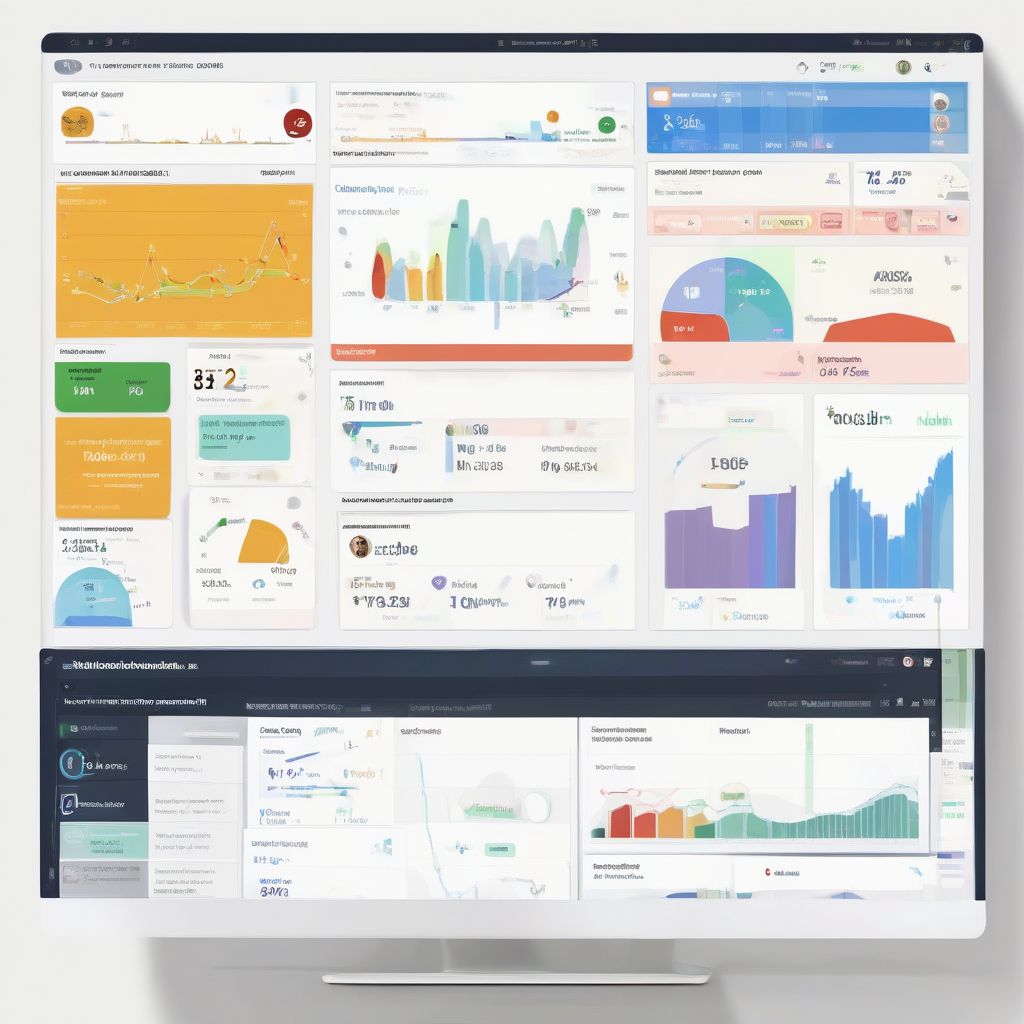In today’s digital age, your online reputation can make or break your business. A single negative review or comment can spread like wildfire, causing irreparable damage to your brand image and bottom line. That’s where Reputation Management Tools come in. These powerful tools empower businesses to monitor, understand, and ultimately influence how they are perceived online.
Why is Online Reputation Management Important?
Before we delve into the specifics of reputation management tools, let’s understand why maintaining a positive online presence is non-negotiable for any business, big or small.
- Building Trust and Credibility: Consumers are more likely to trust and engage with businesses that have a positive online reputation.
- Attracting Customers: Positive reviews and testimonials act as social proof, influencing potential customers to choose your products or services.
- Protecting Your Brand: Responding to negative feedback effectively can mitigate damage and demonstrate your commitment to customer satisfaction.
- Gaining a Competitive Edge: In a crowded marketplace, a stellar online reputation can be the differentiator that sets you apart from competitors.
What are Reputation Management Tools?
Reputation management tools are software programs designed to help businesses monitor and manage their online presence. They offer a range of features and functionalities, including:
- Social Media Monitoring: Tracking mentions of your brand, products, and competitors across social media platforms.
- Review Management: Monitoring and responding to reviews on sites like Google My Business, Yelp, and TripAdvisor.
- Sentiment Analysis: Analyzing online conversations to gauge public opinion about your brand and identify potential issues early on.
- Competitor Analysis: Tracking your competitors’ online activities and identifying opportunities to improve your own strategies.
- Reporting and Analytics: Providing valuable insights into your online reputation, allowing you to measure the effectiveness of your efforts.
What to Consider When Choosing Reputation Management Tools
With numerous reputation management tools available, selecting the right one for your business requires careful consideration of factors such as:
- Business Size and Needs: Tools cater to different business sizes; ensure the one you choose aligns with your specific requirements.
- Industry-Specific Features: Some tools specialize in specific industries like healthcare or hospitality.
- Budget: Prices vary significantly; determine your budget and explore options that offer the best value for your investment.
- Integration with Existing Tools: Choose a tool that seamlessly integrates with your current marketing and customer service platforms.
chuyentiennhanh.org/wp-content/uploads/2024/08/reputation-management-dashboard-66b6ed.jpg" alt="Reputation Management Dashboard" width="1024" height="1024">Reputation Management Dashboard
The Benefits of Utilizing Reputation Management Tools
Investing in the right reputation management tools can offer a substantial return on investment. Here’s how:
- Save Time and Resources: Automate tasks like monitoring and reporting, freeing up your team to focus on strategic initiatives.
- Improve Customer Engagement: Respond to queries and concerns promptly, fostering positive customer relationships.
- Enhance Brand Image: Proactively address negative feedback and showcase positive reviews, strengthening your brand’s image.
- Drive Business Growth: A positive online reputation attracts more customers, leading to increased sales and revenue.
Best Practices for Effective Reputation Management
While reputation management tools are essential, their effectiveness is amplified when combined with strategic best practices.
- Be Proactive: Don’t wait for negative reviews to surface; actively monitor your online presence and engage with your audience.
- Respond to Feedback Promptly and Professionally: Address both positive and negative feedback in a timely and professional manner.
- Encourage Customer Reviews: Request satisfied customers to leave reviews on platforms relevant to your industry.
- Humanize Your Brand: Show the faces behind your brand; engage in conversations and build authentic relationships.
Conclusion
In today’s digital landscape, your online reputation is your most valuable asset. By leveraging the power of reputation management tools and implementing smart strategies, you can cultivate a positive online presence, build trust with your target audience, and ultimately drive business success. Explore the resources available to you and start managing your online reputation effectively today. Remember, knowledge is power, and in the world of business, a strong online reputation is paramount. To delve deeper into business management, operations, and finance, continue exploring our website for valuable insights and expert advice.
